2025 Judging process and criteria
2025 Judging process and criteria
Judging process
- The cut-off time for code that will be reviewed by the mentors is 8 am local time, 9th November 2025.
- Every team will have a code review done, and showcase a demo to a mentor from 8am to 10am local time, 9th November 2025. This is to assess the technical component of your solution and to select teams that will be shortlisted to present on-stage (see code review criteria).
- Teams can continue to code to improve the demo, but mentors only review code committed by 8 am.
- All coding stops at 10.30 am, 9th November 2025 (no more building).
- A maximum of 30 teams can be short-listed to present on-stage to the judges and everyone in the audience.
- Teams selected to present are eligible to receive 1st (USD$5,000), 2nd (USD$3,500), or 3rd prize (USD$2,000).
- Following the presentations, the judges will select the 1st, 2nd, and 3rd prize winners (see judging criteria).
- The teams not selected for presentation will still be eligible for the community prize of USD$1,500. An audience vote will determine the winner of the community prize.
Code review criteria
[out of 11 points]
- Disqualifiers:
- Are the Open Payments APIs used?
- Was all coding work done within the hackathon hours only?
- Template code is allowed
- Whole projects as first commit are not allowed
- [1 point] Code quality: Is the project well-structured and organized?
- [4 points] Complexity: Does the code demonstrate an appropriate level of complexity or cleverness?
- How complex is the use of the Open Payments APIs?
- Is there other interesting tech used?
- [6 points] Functionality: Does the code work as intended?
- Does the demo use the Open Payments APIs for payment?
- Is there a README that includes the steps to run the code?
- Does the code build? (Points are given for scripting languages.)
- Does the code run?
Judging criteria
[out of 20 points]
[5 points] Quality of the idea:
- Creativity and innovation: How creative and innovative is the idea? [5 points]
[5 points] Potential strategic impact:
- Value and usefulness: How does the idea and solution show potential value and usefulness to real-world users? [5 points]
[10 points] Implementation of the idea:
- Technical implementation: How well did you present and demonstrate the technical solution you built [5 points]
- User experience: How well was the user experience considered? [5 points]
Judges
-
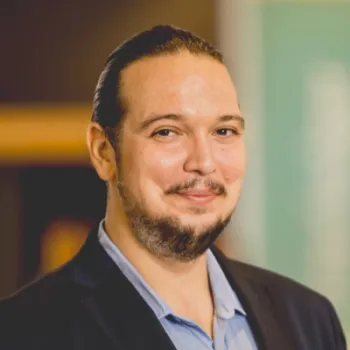
Alex Lakatos
Chief Technical Officer
Alex has spent the past 11 years leading teams and working on the Open Web within browser, communications, and FinTech organizations. With a background in web technologies and developer advocacy, Alex has helped organizations build developer-friendly products while engaging with the developer community at large. As the CTO for the Interledger Foundation, he focuses on lowering the barrier to entry into the Interledger ecosystem, and driving adoption of the open web standards that power the Interledger Protocol.
-
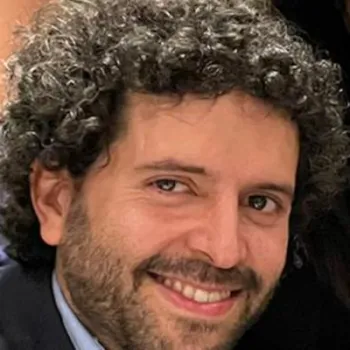
Roberto Valdavinhos
CFO People's Clearinghouse
Roberto holds a B.A. and M.A. in Logic and Philosophy (Pantheon-Sorbonne University), M.Phil. in Comparative Studies (Columbia University). He directed a migrant organization in the US and a national institute in Mexico. Roberto’s current role as CFO at Camara de la Gente (People’s Clearinghouse) focuses on serving migrants and marginalized communities in social justice and financial inclusion projects.
-
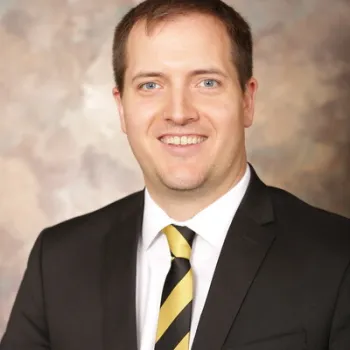
Dr Andrew Mangle
Associate Professor of Management Information Systems
Dr. Mangle is Associate Professor of Management Information Systems in the College of Business at Bowie State University. He leads innovative efforts to expand HBCU student engagement in digital financial inclusion. Through partnerships with the Interledger Foundation, he develops hands-on programs that prepare students to design open payment solutions and address the needs of the underbanked and unbanked. His work integrates FinTech, blockchain, and open-web payments into higher education, ensuring that underrepresented communities gain equitable access to the future of finance.
-
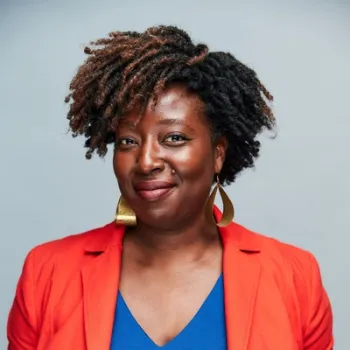
Afua Bruce
Executive Advisor
Afua is a sought-after speaker and author, known for her expertise and insights on ethical technology, responsible AI, and innovation for social enterprises. Her newest book, The Tech That Comes Next, explores how communities and technologists can collaborate to build a more equitable future. Afua was honored with a statue in the If/Then Exhibit highlighting women in STEM, which was displayed in the Smithsonian. She is an affiliate at Harvard Kennedy School’s Berkman Klein Center, sits on the board of Code the Dream, and is a member of the Center for Democracy and Technology’s Advisory Council.
-
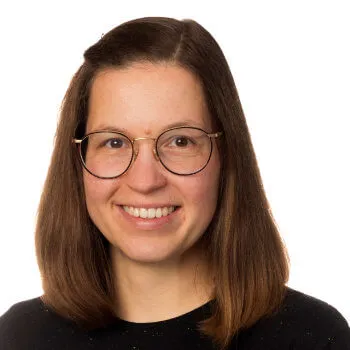
Sabine Schaller
Engineering Manager
Sabine has always been interested in Data Ownership and the Internet of Value. She works on specifying and implementing open standards like the Interledger Protocol (ILP), Open Payments, and Web Monetization to allow for a Web where content can be paid for with hard currency instead of data.